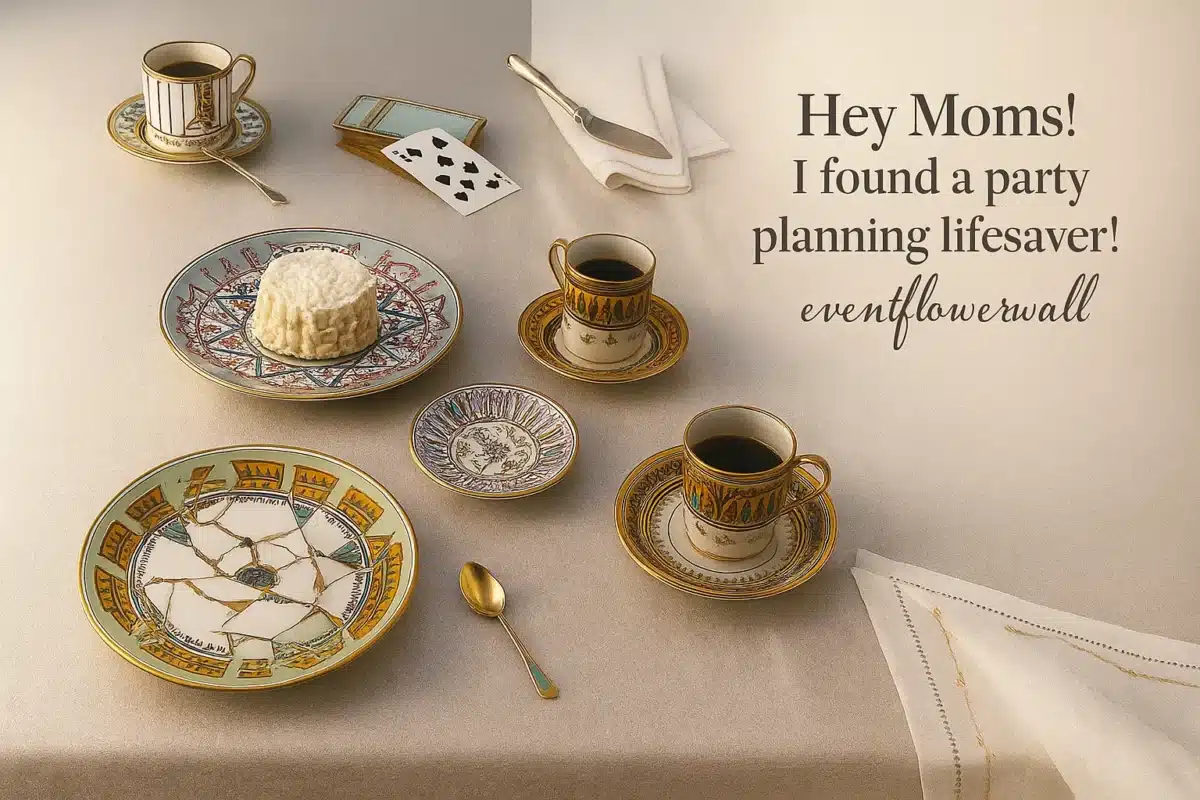Blog
How to Become a Wedding Planner: A Complete Guide to Turning Passion into Profession
Want to become a wedding planner? Learn how to start, get certified, build experience, and attract high-end clients with our step-by-step expert guide.
Introduction
Becoming a wedding planner isn’t just about loving love stories—it’s about mastering logistics, creativity, and emotional intelligence. In 2025, the demand for expert wedding planners continues to grow as couples seek curated, stress-free experiences. Whether you’re starting from scratch or looking to scale your event business, this complete guide will show you exactly how to become a wedding planner—from mindset to marketing.
We’ll share firsthand insights, practical tools, and real experiences to help you stand out in this vibrant, competitive industry.
Chapter 1: What Does a Wedding Planner Really Do?
A wedding planner is much more than a day-of coordinator. You are the strategist, designer, negotiator, therapist, and storyteller behind the scenes.
1.1 Responsibilities of a Wedding Planner
- Meeting with couples to understand their vision and budget
- Finding and negotiating with vendors
- Creating and managing timelines and checklists
- Handling logistics, décor, and crisis management
- Ensuring every detail aligns with the couple’s expectations
1.2 The Skillset You Need
- Organization: You’ll juggle timelines, vendor contacts, and details.
- Communication: You must be the calm, clear voice for vendors and couples alike.
- Creativity: From themes to tablescapes, your touch matters.
- Problem-Solving: Expect the unexpected—then solve it with grace.

Chapter 2: Step-by-Step Guide to Becoming a Wedding Planner
2.1 Step 1: Understand the Industry Landscape
Before diving in, spend time researching wedding trends, different planning roles (e.g., full-service planner vs. day-of coordinator), and market needs in your region. This gives clarity on how you can differentiate yourself.
Pro Tip: Attend weddings as a guest and take notes. What worked? What felt disorganized? Let real experiences sharpen your intuition.

2.2 Step 2: Build Foundational Knowledge
Formal education isn’t required, but training programs and certifications can boost your credibility.
Recommended Areas of Study:
- Event planning and logistics
- Hospitality and customer service
- Floral design, budgeting, timeline creation
- Conflict resolution and emergency management
Experience Story: When I started, I volunteered at a local event agency. My first wedding had a missing cake and a storm delay. That day taught me the golden rule: always have a plan B—and C.
2.3 Step 3: Gain Practical Experience
Before launching your own service, learn by doing.
Ways to Gain Experience:
- Intern with established planners
- Volunteer for community or non-profit weddings
- Offer to coordinate friends’ or family weddings
Take behind-the-scenes photos to build your portfolio—even before you have paying clients.
2.4 Step 4: Develop a Signature Style
Do you specialize in luxury events? Cultural weddings? Intimate elopements? Create a consistent visual and service identity. Use social media, mood boards, and past work to highlight your style.
Chapter 3: Science Behind the Strategy
Why do these steps work? Because they’re rooted in two core psychological principles:
3.1 Trust Building
When clients see you’ve walked this road—with evidence, testimonials, and polished systems—they trust you. Trust is the currency in this business.
3.2 Emotional Mapping
Successful planners think beyond logistics. You anticipate the bride’s anxiety, the parents’ concerns, and the guest flow. Mapping emotions to the timeline ensures harmony.
Chapter 4: Building Your Wedding Planning Business
4.1 Create a Business Plan
- Define your niche, services, and pricing
- Set goals (monthly clients, income targets)
- Plan your marketing strategy and platforms
4.2 Register Your Business
- Choose a name that reflects your brand
- Register for tax purposes
- Get business insurance

4.3 Build a Portfolio Website
Showcase:
- Before/after venue transformations
- Sample timelines, checklists
- Styled shoot collaborations
- Client testimonials
Add a blog to attract SEO traffic and establish yourself as an expert.
4.4 Set Up Social Media Channels
Instagram, TikTok, Pinterest, and LinkedIn are essential. Share:
- Behind-the-scenes footage
- Budgeting tips
- Client wins and feedback
- Inspirational quotes and wedding hacks

Chapter 5: Marketing Yourself as a Wedding Planner
5.1 Network Strategically
Attend bridal expos, vendor showcases, and local chamber events. The event industry thrives on partnerships—make florists, caterers, and venue managers your allies.
5.2 Referrals and Testimonials
Deliver great service, then ask for reviews. Offer a referral discount or reward system to clients and vendors.
5.3 SEO and Content Marketing
Blog about:
- “How to choose your wedding color palette”
- “2025 wedding trends for destination brides”
- “Vendor checklist for stress-free planning”
Each article should offer real value to your audience while boosting your visibility on Google.
Chapter 6: Tips for Standing Out in a Crowded Industry
6.1 Offer Custom Packages
Different clients, different needs. Have flexible tiers—from basic coordination to all-inclusive luxury.
6.2 Use Planning Software
Automate timelines, guest lists, and seating charts with professional software. This frees up time for creativity.
6.3 Invest in Professional Branding
A well-designed logo, matching Instagram aesthetic, and cohesive website will set you apart. Your brand is your promise.
Conclusion: Start Where You Are and Grow with Purpose
Becoming a wedding planner is a rewarding journey, blending heart and hustle. You’ll witness once-in-a-lifetime moments, handle high-stakes emotions, and play a pivotal role in a couple’s happiest day.
Start small. Learn consistently. Lead with empathy. And remember—every great planner was once a beginner with a passion and a notepad.
Frequently Asked Questions (FAQ)
Q1: Do I need a certification to become a wedding planner?
A: No, certification is not legally required, but it enhances your knowledge and credibility.
Q2: How much money do wedding planners make?
A: It varies based on location, experience, and niche. In 2025, average income ranges from $40,000 to $100,000+ annually.
Q3: Can I start part-time or as a side hustle?
A: Absolutely. Many successful planners began by working nights and weekends before going full-time.
Q4: What’s the biggest challenge new wedding planners face?
A: Attracting the first few clients. That’s why volunteering, networking, and a strong portfolio are crucial.
Q5: How do I attract luxury clients?
A: Offer elevated service, build elite vendor partnerships, and invest in luxury branding. Focus on personalization and detail.
Contact Us for Flower Walls, Décor & Planner Tools
Ready to elevate your events with stunning floral installations and wedding decor tools? We support wedding planners and vendors worldwide with high-end products and expert guidance.
📧 info@eventflowerwall.com
📱 WhatsApp: +8615266214311
🌐 https://eventflowerwall.com
Let us be your design and planning partner for weddings that wow.

